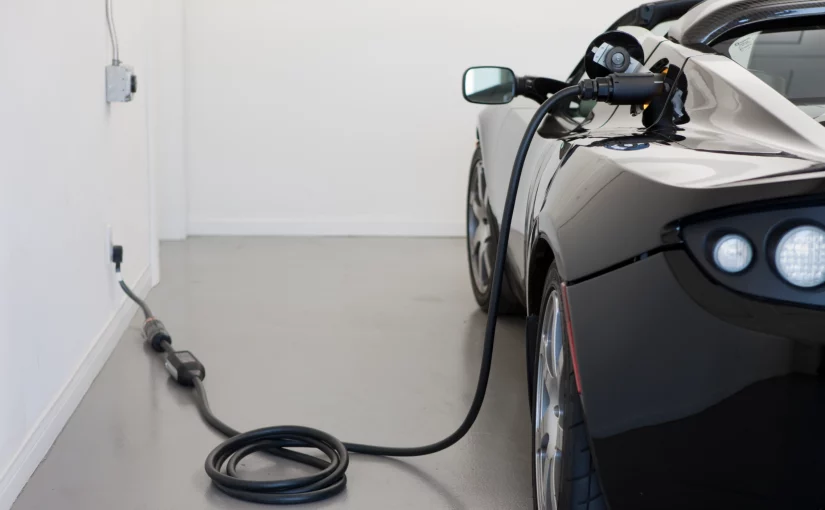Find out now about the electric car revolution in 2023, where price becomes a real argument for choice! Don’t miss this unique opportunity to acquire an electric car at an unbeatable price. With major technological advances, batteries are becoming more affordable than ever, making it possible to offer electric vehicle models at competitive prices. Dive into the era of green, economical mobility by opting for the cheapest electric car on the market. Get ready for an exceptional driving experience, while actively contributing to the preservation of our planet. Look no further, the affordable electric car of your dreams is just around the corner for 2023!
Average price of an electric car
The average price of an electric car varies according to make, model and equipment. Generally speaking, the purchase price of these vehicles is higher than that of combustion-powered cars. A new electric car, excluding top-of-the-range models, costs between €30,000 and €50,000. This is largely due to the cost of battery production, which accounts for a large proportion of the vehicle’s total price. However, to estimate the real cost of an electric car, you need to take into account the subsidies available at the time of purchase, and the savings made on maintenance and fuel.
If petrol or diesel cars are particularly under-priced compared with electric models, in a few years’ time, buying an electric car will become a matter of course. Indeed, acquiring a battery-powered car should no longer be a problem for users, thanks to the various models available on the electric market.
Assistance available for purchase
There are numerous grants available for the purchase of an electric car in 2023, which can greatly reduce the cost of acquisition. These include the ecological bonus, which amounts to €5,000 for individuals, and up to €7,000 for those with a reference tax income per unit of less than €14,090. Overseas departments also benefit from an additional premium of €1,000.
Another important aid is the conversion bonus, which can reach €5,000 for the purchase of a new vehicle and €2,000 for a used one. Together, these subsidies significantly reduce the cost of an electric car, making their purchase more attractive and accessible to a greater number of consumers.
Comparison with combustion-powered cars
Let’s compare electric vehicles with their internal combustion counterparts. There’s no denying that the purchase price of electric cars is higher than that of internal combustion models. Nevertheless, several factors can make electric vehicles more economical in the long term. On the one hand, maintenance costs are generally lower, as there are fewer mechanical parts to maintain or replace. What’s more, the cost of recharging is generally much lower than the cost of fossil fuel. So, despite a higher initial investment, electric vehicles can prove more profitable over time, especially for those who drive long distances every year.
Different electric car models on the market
The electric vehicle market offers a variety of models at competitive prices. Among the most popular manufacturers, Renault stands out for its affordable offerings and outstanding performance. With models like the Renault ZOE, you can enjoy electric mobility without breaking the bank. If you prefer a more upscale option, Tesla is undoubtedly a popular choice. Tesla’s Model 3 offers an incomparable electric driving experience with its elegant design and impressive performance. Whatever your choice, it’s essential to install a home charging station for maximum convenience. With fast, efficient charging, you can recharge your vehicle in no time at all, and enjoy exceptional range thanks to kilowatt-hour (kWh) power.
If you’re looking for a more affordable option, the Dacia Spring is an electric vehicle that deserves your attention. With an attractive starting price, the Dacia Spring offers an affordable and practical electric mobility solution for everyone. However, if you’re looking for an electric car with a long range and top-of-the-range performance, Tesla’s models come out on top.
The Tesla Model 3 combines elegance and power with its high-performance electric motor. You can say goodbye to the high costs of diesel and petrol fuel, because the electric car is more economical in the long term. With the growth of electric mobility, more and more people are turning to electric SUVs to combine comfort and respect for the environment.
Possible resale value
The resale value of an electric car is an important aspect to consider when buying. In fact, these vehicles experience a discount similar to that of combustion-powered cars, especially in their early years. However, the growing popularity of electric vehicles on the second-hand market is making it easier for owners to resell their cars. The benefits of electromobility, such as reduced pollutant emissions and noise pollution, as well as savings on electricity and maintenance costs, help to attract the interest of potential buyers and maintain an attractive valuation for used electric vehicles.
Costs and subsidies
Over the years, the cost of electric vehicles has evolved, and government subsidies have been adapted to encourage their adoption. By 2022, almost 35% of new vehicle sales in France will be subject to the CO2 emissions surcharge, and 20% will be eligible for the ecological bonus. The latter has been distributed to over 270,000 light vehicles in 2021, for a total amount of around 1 billion euros. Conversion bonuses have also been allocated in 2021, 44% of which are for the acquisition of electric vehicles. With these aids and developments, buying an electric car is gradually becoming more affordable for French consumers. Even though, in terms of price, vehicles with electric motors are more expensive. Manufacturers are constantly finding ways to simplify the acquisition of this type of car. The price gap is palpable when compared with the cost of the first electric model car on the market.

